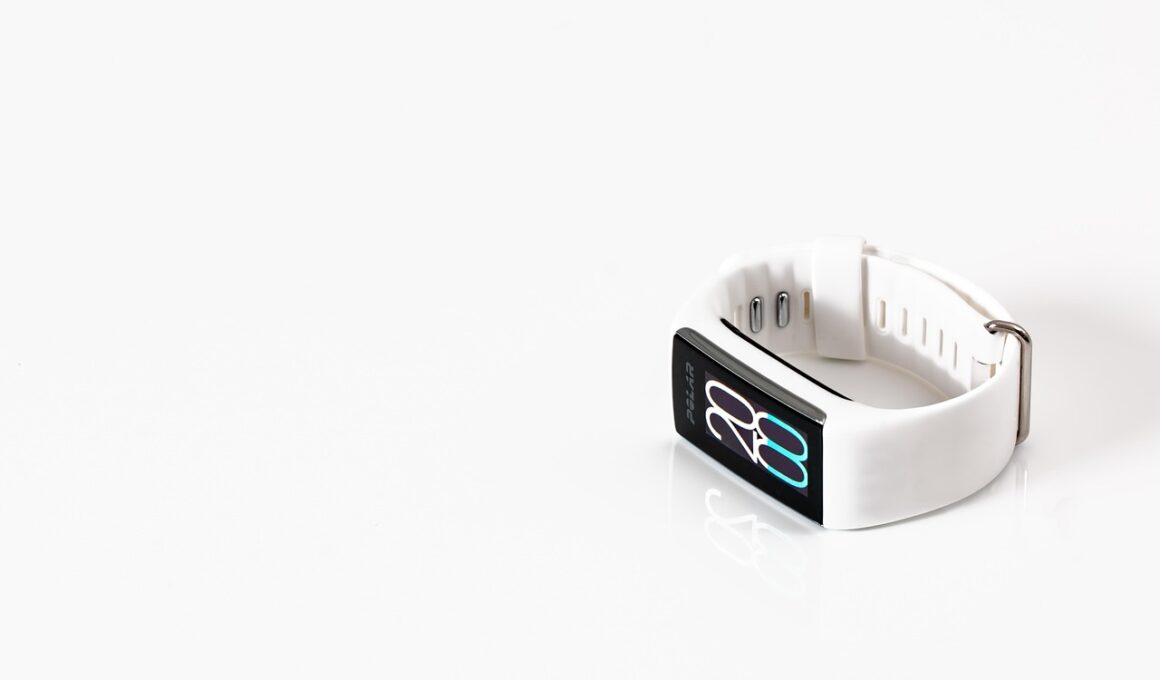Leveraging Machine Learning for Smarter Personalized Coaching Wearables
The rise of fitness technology, particularly personalized coaching wearables, has revolutionized how individuals approach their fitness journeys. These devices leverage advanced algorithms and machine learning techniques to provide tailored advice and support, making workouts more effective and engaging. Machine learning enhances the ability of wearables to analyze user data, facilitating real-time feedback and recommendations. As wearables gather information on heart rate, activity levels, and sleep patterns, they create a detailed profile of each user’s habits. This data-driven approach enables manufacturers to deliver more precise coaching that aligns with personal fitness goals. For instance, if a user struggles with maintaining motivation during workouts, the device can adapt its suggestions to include encouraging reminders or gamified elements. Moreover, integration with mobile health applications allows users to enjoy a more comprehensive view of their fitness progress, tracking how changes in behavior align with long-term objectives. As technology continues to evolve, the potential benefits of personalized coaching wearables will expand dramatically, fostering a more profound connection between users and their physical wellness goals.
The next key component is data privacy, which remains a significant concern for users of personalized coaching wearables. With the proliferation of sensors and data collection capabilities, organizations must prioritize user consent and data security. Many users are understandably wary of sharing sensitive health information with wearable manufacturers, fearing potential misuse. Companies must adopt transparent practices that allow users to control their data usage. Additionally, implementing robust encryption and security protocols ensures that user data is safeguarded against unauthorized access. In a competitive market, businesses that prioritize customer trust are more likely to gain acceptance and increase their market share. As the technology matures, future innovations may improve privacy features, such as anonymized data collection and processing. This ensures that users still receive personalized insights without compromising their confidentiality. Health-conscious consumers seek not only effective wearables but also brands that demonstrate a commitment to responsible data handling. Consequently, addressing privacy concerns will be essential for sustained growth in the wearables industry. By prioritizing these elements, companies can foster loyalty among their customer base.
Another significant aspect to consider in the evolution of personalized coaching wearables is their compatibility with other fitness technologies and platforms. As users adopt multiple devices and applications to aid their fitness journeys, interoperability becomes crucial for a seamless experience. Enhanced compatibility allows wearables to sync and share data with smartphones, smart home technology, and other health applications. This integration helps provide a comprehensive view of health, combining insights gathered from various sources. Through collaborations with health and fitness app developers, wearables can further boost engagement by delivering tailored notifications or targeted tips. Additionally, data analytics tools can synthesize information from multiple devices, aiding users in understanding trends in their performance and health. Such insights empower individuals to make informed adjustments to their fitness routines. With the broader acceptance of smart ecosystems, wearables that collaborate effectively with other digital platforms will gain an edge in the market. Consequently, future developments may focus on creating standards or protocols that ensure compatibility among various wearables and applications, enhancing user satisfaction and fostering healthier lifestyles.
Enhancing User Experience Through Machine Learning
Moreover, enhancing user experience is integral to the success of personalized coaching wearables. As competition in the fitness technology market intensifies, companies must prioritize user-friendly design and intuitive interfaces. Through machine learning, wearables can adapt to user preferences and offer customized layouts, ensuring essential metrics are easily accessible. This personalized approach significantly bears on user engagement and satisfaction, leading to greater usage and adherence to workout plans. Designers can analyze user interactions and behaviors to optimize the interface and include features that resonate with the audience. For example, users can receive gentle nudges or motivational messages based on their past engagement levels. Machine learning algorithms can also analyze feedback from users to improve software updates continuously. Furthermore, incorporating voice and gesture recognition technology can simplify operations, allowing users to interact with wearables seamlessly during workouts. All these improvements aim to create a frictionless, enjoyable experience, ultimately resulting in more effective usage of coaching features. As technology advances, the importance of sophisticated yet simple interfaces will continue to grow within fitness wearables.
Furthermore, the efficacy of wearables for personalized coaching can be significantly enhanced through the integration of social sharing features. These features tap into the motivational aspect of fitness by allowing users to connect with friends, family, or the larger community. Users can share achievements, workout stats, or progress photos, thereby fostering a sense of community and accountability. Social elements can inspire users to push their limits and engage with various challenges or competitions. The inclusion of such interaction boosts not only motivation but also the overall usability of the device. Additionally, many fitness enthusiasts actively participate in group workouts or live sessions through existing platforms, where wearables can play a crucial role. The sharing of real-time performance data during sessions enables participants to support each other and strive for collective goals. Integrating social features allows developers to create personalized coaching experiences that extend beyond the individual’s performance metrics. Emphasizing the community aspect can be a game-changer in attracting and retaining users, especially among those seeking support from others during their fitness journey.
The Future of Personalized Coaching Wearables
Looking ahead, the future of personalized coaching wearables promises exciting advancements driven by artificial intelligence. These technologies will likely revolutionize how wearables adapt to user behavior, making them increasingly proactive rather than reactive. Instead of merely responding to inputs, AI-powered wearables could anticipate user needs based on historical data and behavior patterns. For instance, if a user consistently struggles with a particular workout, the device may proactively suggest alternatives or adjustments before the next session. The utilization of AI can also result in a deeper understanding of individual responses to various training methods. This provides a more tailored approach, enhancing the overall effectiveness of fitness routines. The potential to learn from each user’s unique preferences opens doors for unprecedented customization levels. Besides, enhancing predictive capabilities can lead to innovative features, such as injury prevention suggestions based on user activity trends. By harnessing AI and machine learning, the wearables industry will move toward creating truly intelligent coaching tools, fundamentally transforming individuals’ approaches to personal fitness and health management.
Lastly, the potential for enhanced biometric tracking in personalized coaching wearables cannot be overlooked. Advanced sensors will allow for more detailed and accurate measurements of health metrics, expanding beyond the basic data currently collected. Future wearables may offer features such as continuous blood glucose monitoring or real-time hydration levels to help users make more informed decisions about their health. This depth of data gathering preserves the importance of personalization, enabling wearables to deliver recommendations based on a broader range of health indicators. Additionally, as the technology continues to evolve, integrating wearables with telehealth platforms can offer users access to professional medical advice and support whenever needed. This collaborative approach ensures comprehensive care, enhancing the effectiveness of personalized coaching solutions. Increased biometric data may also attract researchers and healthcare providers, presenting opportunities for partnerships within health tech ecosystems. As such, the focus on enhanced biometric tracking within wearables could pave the way for an era of health management that is insightful, effective, and personalized.


